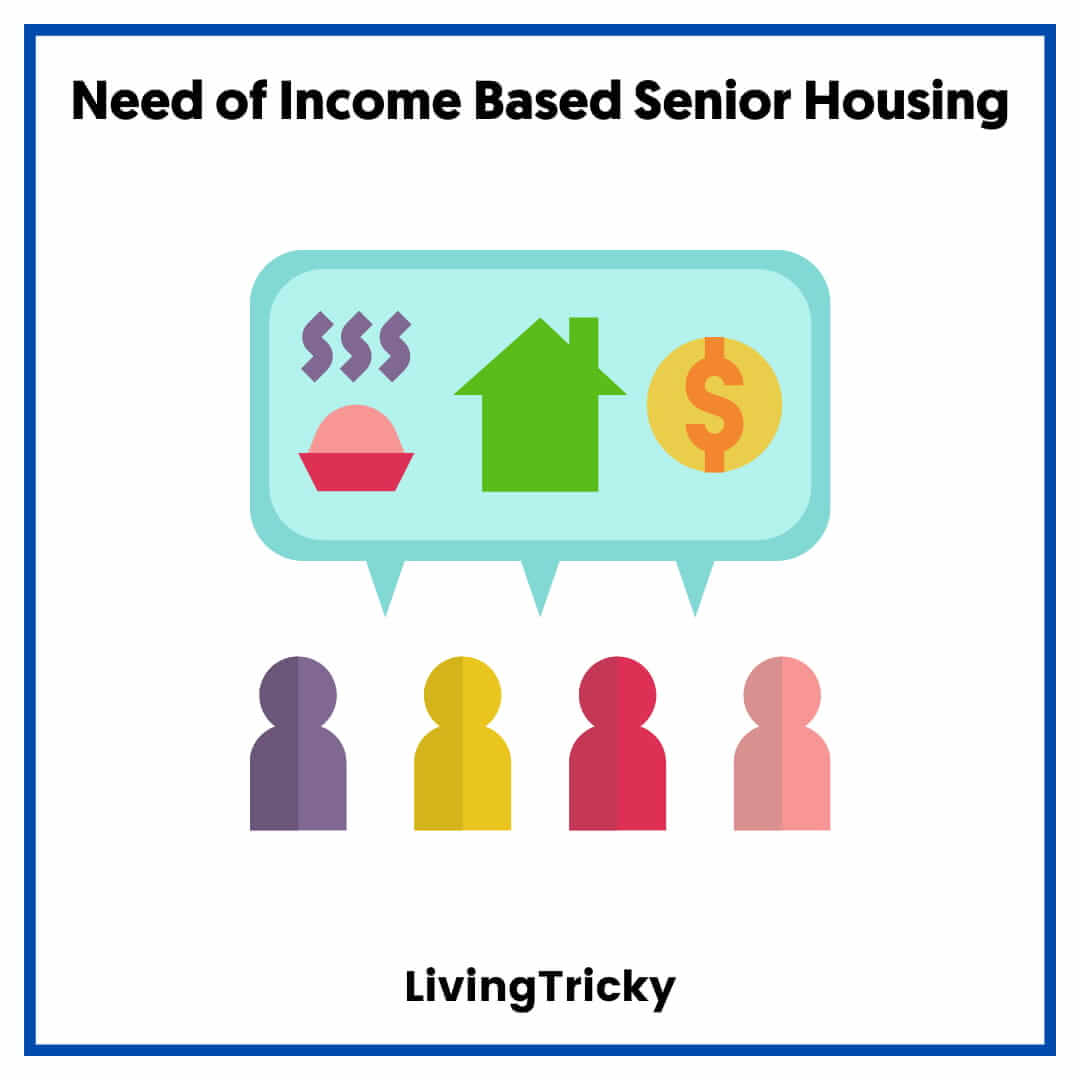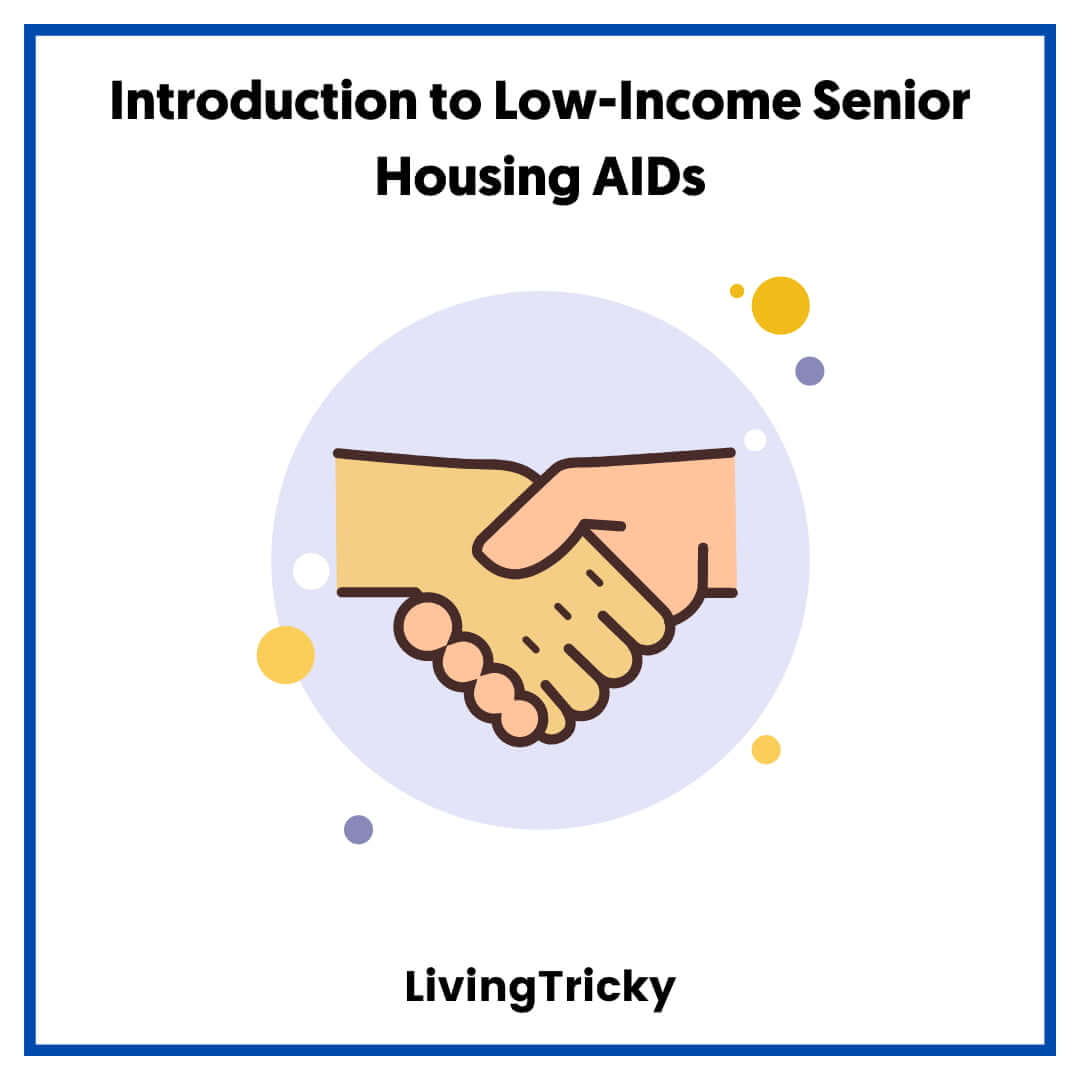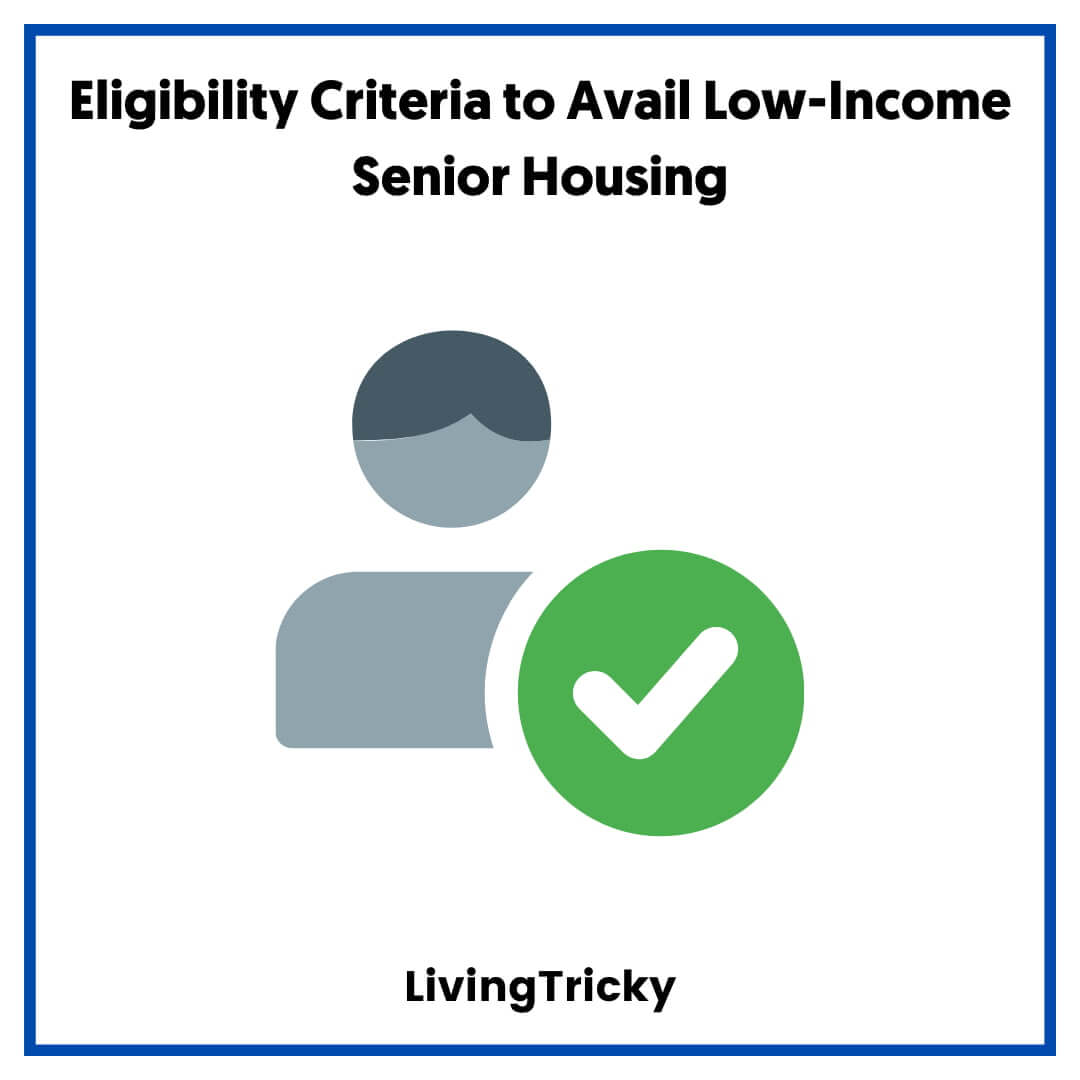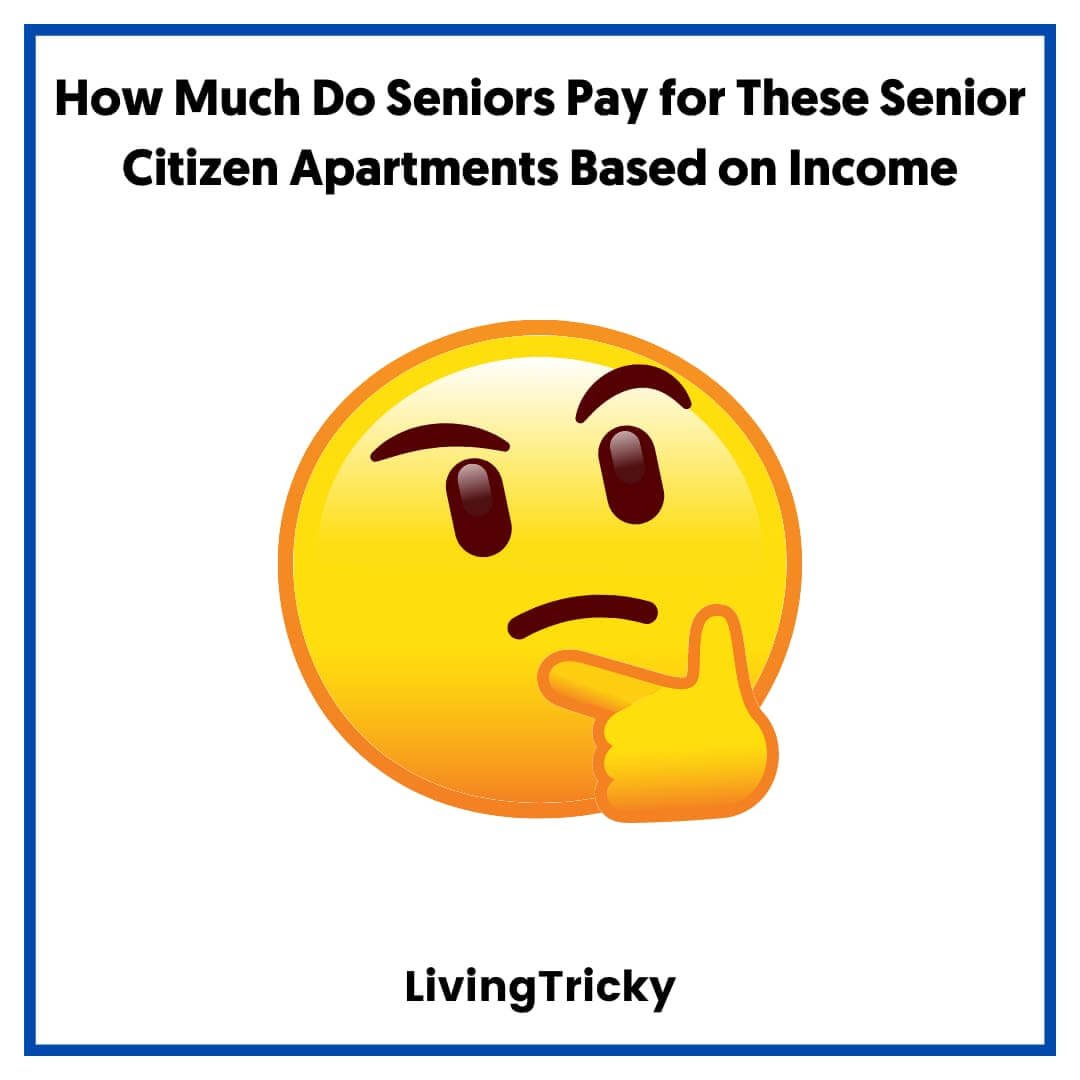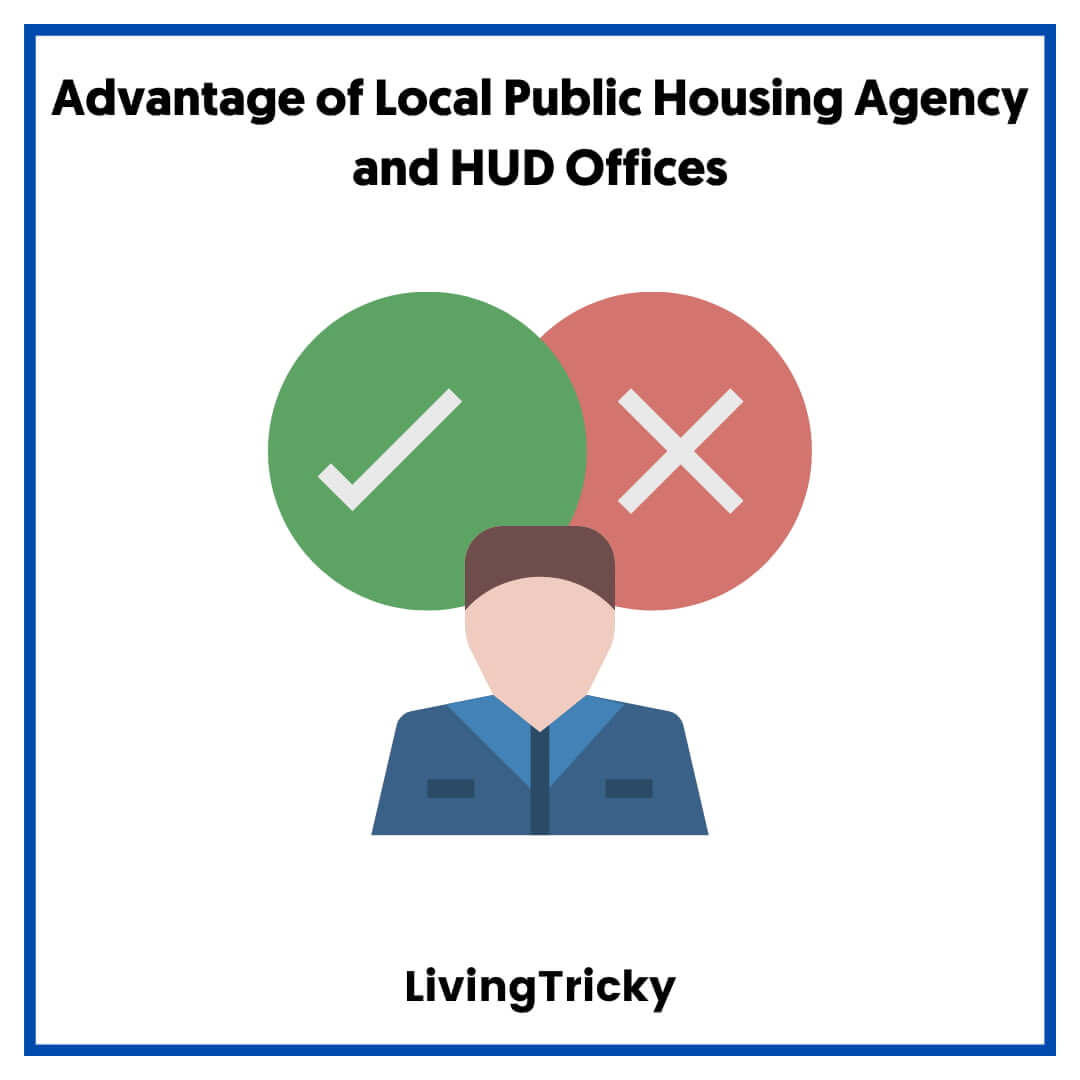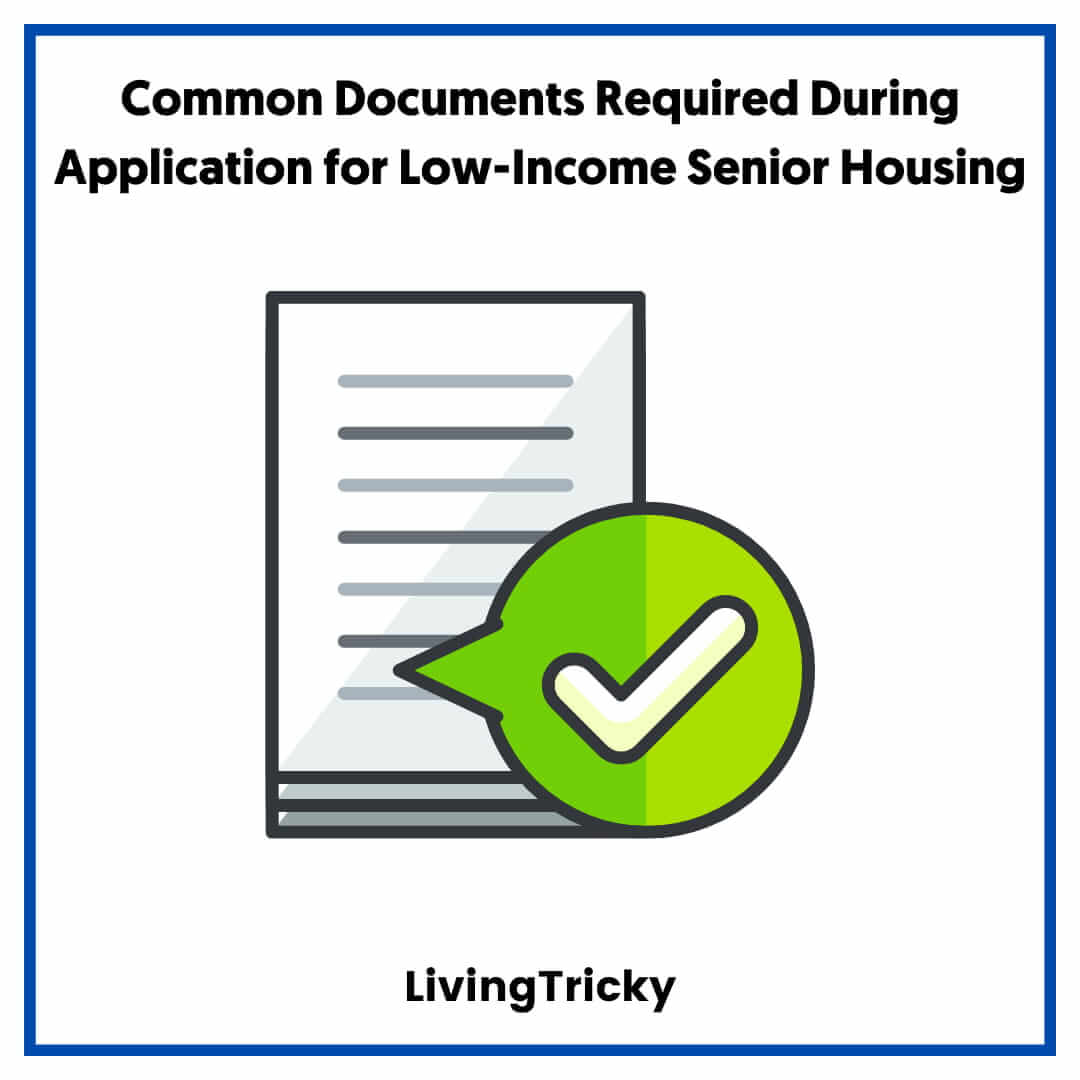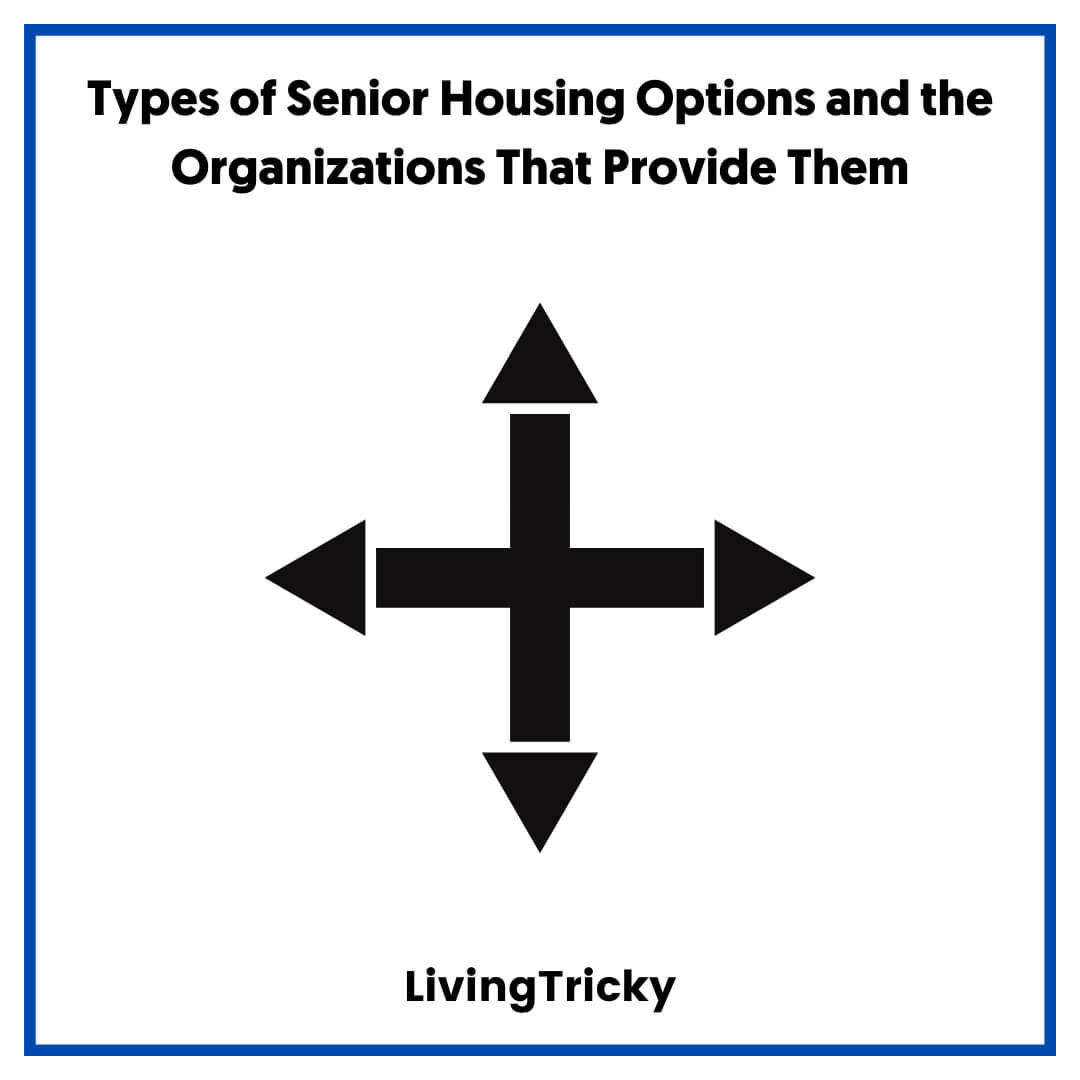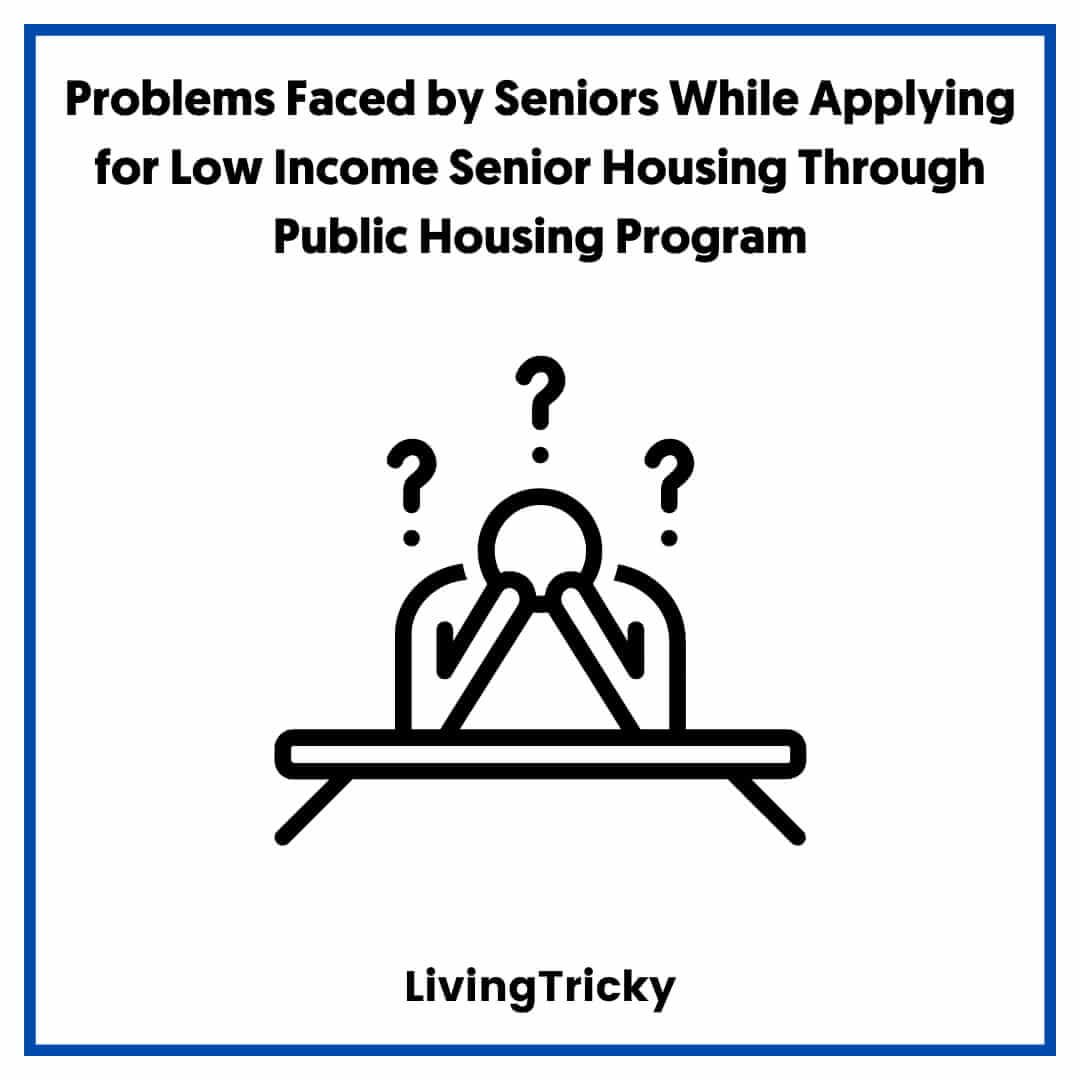Today I’m going to share with you How To Get Apartments For Seniors Based On Income.
Senior citizens have a separate and articulate set of needs that they look for while finding accommodation, financial feasibility being one of them as most of the senior-friendly housing options are on the higher end of the monetary scale.
This article deals with the many ways that one can get apartments for seniors based on income.
How To Get Apartments For Seniors Based On Income?
In a country that has a population of approximately 32.95 crores, finding a decent living situation resonating with your needs and income levels simultaneously in the U.S poses a challenge for a lot of people and when you are a senior citizen with a considerably small portion of money set apart for your living costs, it greatly narrows down your options.
The U.S government alongside some non-profit organizations recognizes this challenge and has initiated programs to help citizens get apartments for seniors based on income that satisfy their individual needs.
Also Read – Free Government Phone Stands Near Me With Unlimited Talk
Introduction to Low-Income Senior Housing AIDs:
Seniors in the 55 or above age group have comparatively shown trends of lower incomes and a higher number of issues in finding appropriate accommodations.
Apartments with basic facilities like cleaning, transportation, etc. needed by these people have high rents so these government-funded programs help find places, referred to as senior citizen apartments based on income to help those who need it.
Apart from schemes made exclusively for people to get apartments for seniors based on income, there is various rental assistance for the disabled folks where seniors passing the eligibility bar can apply for suitable low-income senior housing.
Some of these talked about programs that can provide satisfactory senior living apartments based on income are housing choice voucher programs, section 202 supportive program, USDA’s (U.S department of agriculture) rural apartment for senior program alongside many more.
It should be noted that these senior citizen apartments based on income are competitive and have standardized detailed eligibility criteria that one should be familiar with before applying for any of these government-funded income-based senior housing aids.
Some of these income-based senior housing programs with their goals and mechanisms are explored in this article to give you an overall detailed view about the majority of your options as you dive into the broad research on finding “low-income senior apartments near me” for yourself or your loved ones.
Also Read – Free Laptops for College Students from Low-Income Families
Eligibility Criteria to Avail Low-Income Senior Housing:
The eligibility criteria to qualify to get apartments for seniors based on income varies from program to program but the broadest eligibility criterion is that the person applying should be a part of the 50 percent of median income in an area or less group and patently either in the 55 or older group or 65 or older group to get under most of the government schemes to get apartments for seniors based on income.
The percentage of median income varies from as low as 30 percent to as high as 80 percent. The low-income bracket that you fall into determines the kind of low-income senior housing aid you can avail and it most definitely affects the amount of subsidy that you receive.
The number of people per family and the area of residence that the applicant is from also affect the income criteria of eligibility for these low-income senior housing schemes as it directly or indirectly affects the median income of an individual.
For example, 115,300 dollars is the median income in the city of San Francisco, and there are low-income senior housing aids that cater to both, people with a median income as low as 46100 dollars annually (the 50 percent median salary group) to people with yearly median salaries as high as 73750 dollars (the 80 percent median salary group).
It should be noted that all sources of income are included while counting the low-income senior housing eligibility criterion sum. Pensions, retirement accounts and any annuities are added.
Social security and disability benefits, if applicable are also accounted for while calculating the same, making sure that applicants who qualify the qualifying low-income senior housing criterion are those who need these aids the most.
Also Read – Free Air Conditioner Programs: Get Free Air Conditioners from Government
How Much Do Seniors Pay for These Senior Citizen Apartments Based on Income:
The exact amount paid by individuals for these senior living apartments based on income varies as the “income” aspect for each applicant and program is different.
Typically, these low- income senior housing aids ask for the payment of approximately just 30 percent of the adjusted income by the senior citizen and the rest is paid by the federal government or HUD (Department of Housing and urban development) assisted organization that provides low-income senior housing selected by the individual which also includes HUD’s well known rental assistance program.
The Application Process for Low-Income Senior Housing AIDs:
You can start an application to get apartments for seniors based on income at the local public housing agency in your area.
If you don’t know where your nearest local public housing agency or Local HUD office is, the next section deals with finding them, the application process continues right after.
Also Read – All Types Of Verizon Discounts For Seniors
Locating Your Local Public Housing Agency:
Local public housing agencies are built by the state to help people with their applications for housing aids which include low-income senior housing applications as well. To find a local public housing agency close to your area, follow the given steps:
1. Open the following link:
https://www.hud.gov/program_offices/public_indian_housing/pha/contacts
The above link will open up to a directory of local public housing agencies.
2. Click on your state on the map on the site or pick your state and select the option “Go to this page”.
3. This will open up a list of public housing agencies in the selected state.
4. Using the contact information given or after separately looking up your public housing agency of interest, you can proceed to email or call them.
5. The list will also inform the viewer if a public housing agency handles cases of Section 8 housing, low-rent programs, etc. or several of them together.
These local public housing agencies help people with any housing related applications including ones that deal with the procedure to get apartments for seniors based on income, entertain any sort of queries related to these government housing policies and are the only places that can tell you if you are eligible for a given program.
So, it is advisable to contact the public housing agency closest to you, enquire to them about the aids they can offer for you to attain the best low-income senior apartments.
Also Read – How to Get Free Government Tablet for Low Income Families
Locating Local HUD Offices Around You:
HUD which stands for housing and urban development is a U.S. based government agency that has been set up to provide development in terms of community and housing so every citizen, irrespective of their age, gender, monetary status, etc can gain access to “fair and equal” housing.
Alongside the provision of senior citizen apartments based on income, HUD has programs that aim at supporting homeownership, fighting housing discrimination, increasing safe and affordable rental housing for all and fighting the seemingly never-ending problem of homelessness.
To enquire about the details, aids or application processes of any such low-income senior housing or related programs or to take a look at all the housing aids that might be helpful to you, one can walk into any local HUD office.
The following link will open up to a list of HUD offices and you can search the one nearest to your location by clicking on the abbreviation provided for your state: https://www.hud.gov/program_offices/field_policy_mgt/localoffices
Also Read – How To Lease Cell Phone No Credit Check Required
Advantage of Local Public Housing Agency and HUD Offices:
Not all senior citizens are technologically sound enough to browse through the internet looking for websites or research on how to get apartments for seniors based on income, even though there is a plethora of information on the government and respective non-profit organization’s websites if you look up “income based senior apartments near me “.
These offices provide senior citizens with offline one on one personal assistance which really helps them get through the application process of at least the government programs to get apartments for seniors based on income much more conveniently.
Also Read – What To Do With an Old Router? – 11 Best And Creative Ways
Common Documents Required During Application for Low-Income Senior Housing:
To avoid these government-funded income based senior housing apartments not ending up with those who need it the most, a thorough examination of all necessary documents is done.
So, it is necessary to check up all the documents needed and get them ready by either accessing the site or communicating to a local public housing agency through a call, email or a walk-in appointment to ensure that your application for these qualifying low-income senior housing is not terminated due to documentation-based errors.
The common documents that should be there with every applicant while applying to get apartments for seniors based on income are:
- Valid birth certificate
- Credit Status
- Bank information
- Tax Status with reference
- Papers defining the status of citizenship if the applicant is an immigrant [If applicable]
- Health conditions with necessary medical certificates
Providing information about your health conditions helps the representative understand your individual requirements better and provide you with the most suitable apartment under their low-income senior housing aid.
Any valuable information that might be considered important, if hidden, may lead to a direct disqualification of the applicant.
Also Read – How To Get No Credit Check T-Mobile Latest Smartphone
Types of Senior Housing Options and the Organizations That Provide Them:
As many organizations, both governments, and non-profit local ones help individuals to get apartments for seniors based on income, it is best to apply in all of these options to maximize the chance to get apartments for seniors based on income that might be a perfect match for you.
Some of the schemes, programs and organizations that have aids for income based senior housing are further explored in this section of the article.
HUD Public Housing Program:
Public housing, being one of the U.S.’s three main rental assistance programs alongside Housing choice vouchers and project based rental assistance, obviously covers senior living apartments based on income.
The Department of Housing and Urban Development established this program to provide decent and safe rental housing for eligible low-income families and even individual senior citizens.
Public housing is a widespread program and low-income senior housing comes in various types and sizes of accommodation, from single-family houses for single applicants to high-rise flats for elderly families.
A senior citizen with his/her family must have a “low income” as defined by HUD which is less than 80 percent of the local median income to be eligible for the provided senior citizen housing based on income.
40 percent of the new families that a housing agency admits each year must have “extremely low incomes” at the least which is no greater than 30 percent of the local median or the poverty line, whichever is higher which gives a lot of seniors with low budgets a chance to obtain a suitable senior housing based on income.
It should be noted that most agencies exceed this requirement by a huge margin.
A senior individuals’ eligibility is not only based on their annual gross income alone but also their U.S. citizenship or eligible immigration status. If the applicant is eligible for a particular senior apartment (based on income), a public housing agency will check his or her references based on their respective application to make sure that they along with their family will be good tenants.
If the agency concludes that the person as a whole will clash with other tenants, his or her application can be terminated as well.
Also Read – The Best Tracfone Flip Phones With Plans
Problems Faced by Seniors While Applying for Low Income Senior Housing Through Public Housing Program:
While trying to get apartments for seniors based on income, one should keep in mind that the public housing program is extremely competitive and has grown to latch several stereotypes to it.
First of all, comes a lack of maintenance of the low-income senior housing apartments which greatly affects the standard of living of the seniors living there. Low maintenance on top of just doable apartments makes them physically unattractive.
The reduction of the property value on lands where these low-income senior housing flats are made is also an evident challenge.
It has been recorded that there is a higher expectation of crime in areas where these income based senior housing apartments are located. There seems to be a sense of disapproval of senior housing as a handout among the masses as well.
- Section 8 Housing Choice Voucher Program:
The housing choice voucher program provides help and assistance to extremely low-income families and qualifying senior citizens to get access to safe and clean sanitary accommodation.
Low-income senior housing options can include single-family homes, townhouses and flats. It is important to note that the low-income senior housing options provided by this program is not limited to units located in government housing projects alone. These vouchers are functioned by PHAs i.e., Public Housing Agencies.
A group or family that chooses to issue a housing voucher is responsible for finding a suitable senior living apartment based on the income of the senior citizen’s or family’s choice where the owner agrees to rent under the program.
Once a suitable low-income senior apartment is found, a housing subsidy is paid by the PHA to the landlord of the particular apartment.
The participating or group or family then pays the difference between the amount subsidized by the program and the regular rent charged by the landlord on the apartment.
A senior having low or very low income based on annual gross income and in need of decent, safe, and/or sanitary housing can apply for the program and get low-income senior housing opportunities.
As mentioned above, Section 8 allows participants to rent private residences which broadened the option of low-income senior housing opportunities to not only various government-subsidized apartments, condominiums but also townhouses, trailers, duplexes and single-family houses.
The housing authority, to keep in budget, puts a maximum amount limit on the monthly rent amount for qualifying low-income senior housing places.
This maximum limit depends on the number of bedrooms of the domicile and the overall mean rent in the locality.
It is crucial to note that Section 8 tenants sign leases with private landlords. This clearly means that the lease agreements between the tenant and the landlord are beyond government rules beyond regular lease laws. So, it is important to thoroughly go through the lease before opting for that particular low-income senior housing option.
- Low Income Housing Tax Credit (LIHTC):
Unlike Section 8, the Low-income housing tax credit program often referred to as Section 42 doesn’t provide tenants with government assistance. But they still help broaden low-income senior housing options and increase the probability of an applicant to get apartments of seniors based on income.
Prospects as properties financed under Section 42 are required to house a percentage of residents earning less than 60 percent of the area’s median income that includes low-income senior citizens as well.
LIHTC is a part of the federal government’s attempts at provision for decent living conditions to low-income families and senior citizens. They provide a tax credit to developers who build affordable housing into their projects. This increases the number of affordable senior living apartments based on income.
Section 8 and public housing (discussed above) are two different things as Section 8 provides a broader selection of low-income senior housing options as they involve private accommodation choices as well, while public housing includes developments of government-sponsored dwellings and apartments alone.
- Section 202 Program:
Section 202 (Supportive Housing for the Elderly) was Established in the Housing Act of 1959 and is a Housing and Urban Development (HUD) initiative that provides capital advances and direct loans from the federal government to non-profit organizations to build low-income senior housing for senior citizens.
Congress gave in $825 million for Section 202 construction alongside various rental assistance projects in In FY 2010.
No new funding has been available for Section 202 since 2012, but the senior living apartments based on income that was built with Section 202 funds, still continue to provide affordable housing plus services to their residents to date.
Section 202 defines seniors as 62 or older and gives them low-income senior housing options that allow them to independently live in an environment that assists them in day-to-day activities such as cleaning, cooking, transportation, etc.
Section 202 branches into two components: capital advances and operating assistance. Firstly, the capital advances are provided to non-profits to cover expenses of construction of low-income senior housing, assets building, or rehabilitation costs.
HUD provides rental assistance known as Project Rental Assistance Contracts that make up the difference between the reduced rents that eligible seniors living in the low-income senior housing provided are required to pay about 30 percent of adjusted income alongside the operating expenses of their project.
Predevelopment grants to look over non-profit use of Section 202 funds, monetary aids to institutions to hire service coordinators, and emergency repair grants which ultimately increase the quality of the way of life of the seniors living in qualifying low-income senior housing.
Private non-profit organizations can apply to develop Section 202 schemes by giving in a minimum capital investment of 0.5 percent of the amount that HUD decides upon.
- Subsidized Housing for Multifamily:
In a federal multifamily housing project, the owner of the income based senior living apartments has a contract with the U.S. Department of Housing and Urban Development (HUD) directly.
HUD provides rental subsidies, below-market interest financing, mortgage insurance, etc in exchange for the owner agreeing to subject his or her property to low-income use restrictions.
There are approximately 71,000 affordable apartments in Massachusetts funded through federal multifamily programs, out of which many act as senior low-income apartments for rent.
- Non-Profit Organizations:
The National Housing Corporation is a non-profit organization that is located in Fishers, Indiana which helps applicants to get apartments for seniors based on income.
A senior citizen can reach out to the AHEPA and they will be put in touch with a property manager in their respective locality who can help them obtain the best senior living apartments based on income.
Very much similar to local public housing agencies, this organization also provides seniors with advice and information about the types of amenities and services that are available in their area apart from just assistance in how to get apartments for seniors based on income.
For instance, AHEPA representatives can help you find fine arts programs at senior living apartments (based on income) as well as similar apartments offering onsite medical services or nutritional programs.
- Area Agency on Aging:
The older Americans act provides federal funds for a network of non-profit agencies alongside additional local and state funding. This network is coined as area agency on aging, as of today, there are over 600 Area Agencies on Aging across the U.S.
Their mission is to help citizens get apartments for seniors based on income by getting older adults to affordable homes and community-based services so they are not forced to move to assisted living or nursing homes if they don’t want to.
Alongside the provision of low-income senior housing, many area agencies of aging work with local service providers to provide services and extra perks like meals, transportation and in-home caregiving.
- Senior Living Advisors:
We have discussed many ways for a person to get apartments for seniors based on income yet and we can conclude that these applications need time, patience and sometimes technological soundness to obtain the best low-income senior housing that can be obtained.
Not all seniors tick all these boxes so there are specialists, typically known as senior living advisors, senior housing experts, placement specialists, or referral agents that help seniors to get the best senior citizen apartment based on income.
A senior living advisor can browse through all low-income senior housing aids, government or otherwise and highlight the ones that seem to be the best fit for their client.
To put it in simpler words, Senior living advisors are like real estate agents, the difference being that they specialize in finding low-income senior housing or locating senior low-income apartments for rent.
Every senior has many things to consider while looking for a suitable low-income senior housing option which can be tricky so these advisors take care of these factors and filter the viable options for them.
The various factors that may affect a senior citizen’s decisions while hunting for a senior living apartment based on income are: Budget, care needs if any, location i.e., proximity to their family, lifestyle and personality fixes and very importantly payment options like if they’d be provided with long term care insurance, VA Aid & Attendance, etc,
These specialists also know how to find out if the short-listed senior citizen housing based on income have violations that were reported to the State Board which sheds light on the quality and safety of the qualifying low-income senior housing options.
One doesn’t pay a senior housing expert out of your own pocket as they get paid a commission by the senior living community that their client moves into.
To find a senior living advisor to help you get your hands on the best senior citizen housing based on income in your area, you should call your county’s Area Agency of Aging to see if they have any recommendations.
- Village System:
Many seniors go through the many negative effects of isolation and the concept of the village system which is a nationwide network of nonprofit membership organizations provides them with low-income senior housing so they can continue the feeling of aging at home, get trusted assistance when they need it, and continue remaining social.
Seniors availing of the low-income senior housing provided by these villages pay a fee for access to and help with vetted or signed up local services including transportation, handyman services, help with household tasks.
Social activities are arranged to increase interaction among the seniors in the same low-income senior housing village. A Village can be best described as a concierge service. If a senior living in one of the low-income senior housing places need a service, they are connected with approved and signed up local companies,
On average, it costs about $50/month or $600/year.
For more detailed information, continue to browse about senior living apartments based on income provided by villages on Vtvnetwork.org.
Also Read – 5 Cheap TV Service No Contract Deal – Best Choice
Options If You Have a Higher Budget:
- Residential Care Home
Also known as a board and care home or personal care home, residential care homes are also a good option.
These places provide senior housing based on income (high) alongside care to small groups of adults over age 60. In California, 90% of these homes have 6 or fewer residents.
Senior housing based on income (high) under Residential care homes are typically located in the middle of regular residential areas as they are generally private homes converted into small living groups which provide more personalized care and staff attention because each home has few residents.
Residential care homes’ senior living apartments based on income (high) generally provide single or double bedrooms. Meals, housekeeping and meals but not assistance with more personal things like bathing, moving around, dressing and grooming and toileting.
Certain types of medical-level care, like tube feeding or treatment of open bed sores may or may not be provided.
- Continuing Care Retirement Community (CCRC)
CCRCs are places that are a mix of various facilities i.e., they are part independent living, part assisted living and part skilled nursing facilities.
- Assisted Living Community
An assisted living community typically consists of small senior living apartments based on income (high) in a caring community. There’s a wide range of services that are provided 24 hours a day like meals, medication management, bathing, dressing, housekeeping, and even transportation.
Common areas for social and recreational activities alongside group dining areas have been created to encourage socialization.
- HUD and the COVID-19 Pandemic:
In late June of 2021, the Biden administration prolonged its nationwide ban on evictions from government assisted housing including low-income senior housing from June 30 to July 31.
The eviction ban was extended to offer assistance to renters including senior citizens who were unable to make rental payments during the pandemic, but as these government-funded rental assistance programs work with thinly cut budgets, the Biden administration said that this would be the final extension.
Like this post? Could you share it with your friends?
Suggested Read –
- How To Get a Free Smartphone Online – A Step By Step Guide
- How To Win A Free iPhone Without Paying a Penny
- Best Apple Watch Payment Plan, Bad Credit
- How to Get Free Government Internet and Laptop for Low Income Families
Ending the Article:
It is possible to get apartments for seniors based on income (high or low) for an individual looking for the same, which might be their ideal fit, even though the process might be rough with long waiting lists.
That is why one should cover all bases i.e., look for all institutions and schemes, government funded or otherwise that can help them get apartments for seniors based on income and apply to all of them depending on his or her income which increases the probability of getting accommodation as soon as possible.

